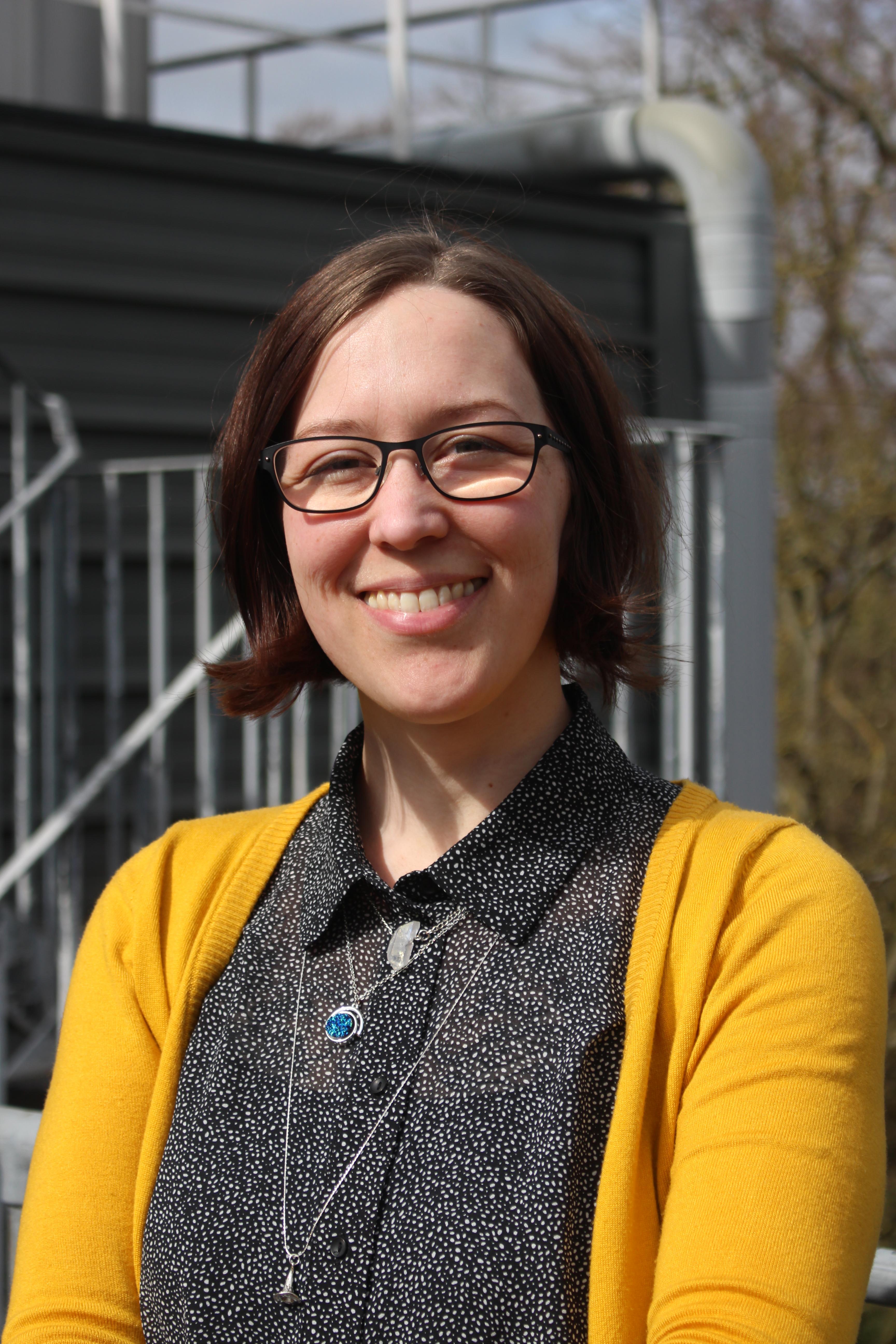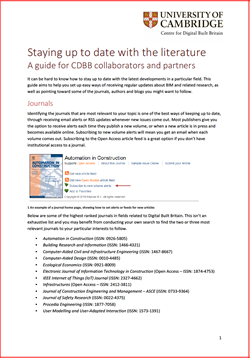
Submitted by Angela Walters on Wed, 04/04/2018 - 14:36
In this month's team blog we are pleased to introduce Kirsten Lamb, who is working with the CDBB as our information specialist. Find out what her role involves and how you can benefit from Kirsten's guide to staying up to date.
If you’re a regular reader of our blog, you’ve probably gathered by now that ‘Digital Built Britain’ is a concept that mingles at the edges with many others. The starting point of the Centre has been with Building Information Modelling (BIM), but its long-term aim is much broader. Big data, Internet-of-Things and Systems-of-Systems technologies present the opportunity to build structures and infrastructures that talk to each other, talk to service providers and learn from physical and social data. This means that a diverse range of academic disciplines (e.g. sociology, politics, decision science, civil engineering, computing and information science) and sectors (e.g. aviation, aerospace, manufacturing, oil & gas and transportation) may need to converge on interdependent, collaborative systems in order to make this joined-up, frictionless future a reality.
As an information specialist working with the CDBB core team I’m conducting research that looks quite broadly at other sectors that are developing solutions to digitalisation challenges such as data interoperability, skills gaps in the workforce and cybersecurity. Where different drivers cause a particular sector to excel in one or two areas, other sectors have the opportunity to learn from what they’ve done. The reporting I’m doing is helping to guide the Centre’s thinking by providing an overview of what’s out there and what they can learn from sectors other than construction.
One of the most common themes I’m finding so far relates to human factors in sectors that are moving into digital spaces. A number of sectors that traditionally have strong engineering roots are finding it difficult to recruit people with the skills needed in “Industry 4.0”, characterised by automation and big data exchanges. Without digital leadership at all levels of enterprises, many are having trouble getting digital initiatives off the ground.
That means that digital and information literacy are crucial skills for the future of smart infrastructure, as Terry Stocks discussed in his blog post. In a digitally literate future, business leaders, employees and the public have an understanding of how to find, manage and use data and information in informed and ethical ways. For example, the manager of a service understands what data they can appropriately gather from customers and how to safely manage those data, while the customer is aware of how their data are being used, how to find out about the services they are using. While CDBB is about data, it is also how people use data to accomplish their goals and create knowledge. That intersection is incredibly interesting to me as an information professional.
 Having an information specialist on board means that, in addition to reporting on what other sectors are doing, the team can send me requests for quick searches (“Who is working on BIM in the University curriculum?” or “Can you find me some resources on the ROI of using BIM tools on projects?”) and I can produce a list of papers for them to have a look at. I’ll also be able to help with horizon scanning and defining what the characteristic tasks, tools and outcomes of a Digital Built Britain. If you want to know how to keep up to date with the literature on Building Information Modelling or any other facet of Digital Built Britain, you can check out my guide for who to follow and how to set up alerts here.
Having an information specialist on board means that, in addition to reporting on what other sectors are doing, the team can send me requests for quick searches (“Who is working on BIM in the University curriculum?” or “Can you find me some resources on the ROI of using BIM tools on projects?”) and I can produce a list of papers for them to have a look at. I’ll also be able to help with horizon scanning and defining what the characteristic tasks, tools and outcomes of a Digital Built Britain. If you want to know how to keep up to date with the literature on Building Information Modelling or any other facet of Digital Built Britain, you can check out my guide for who to follow and how to set up alerts here.
